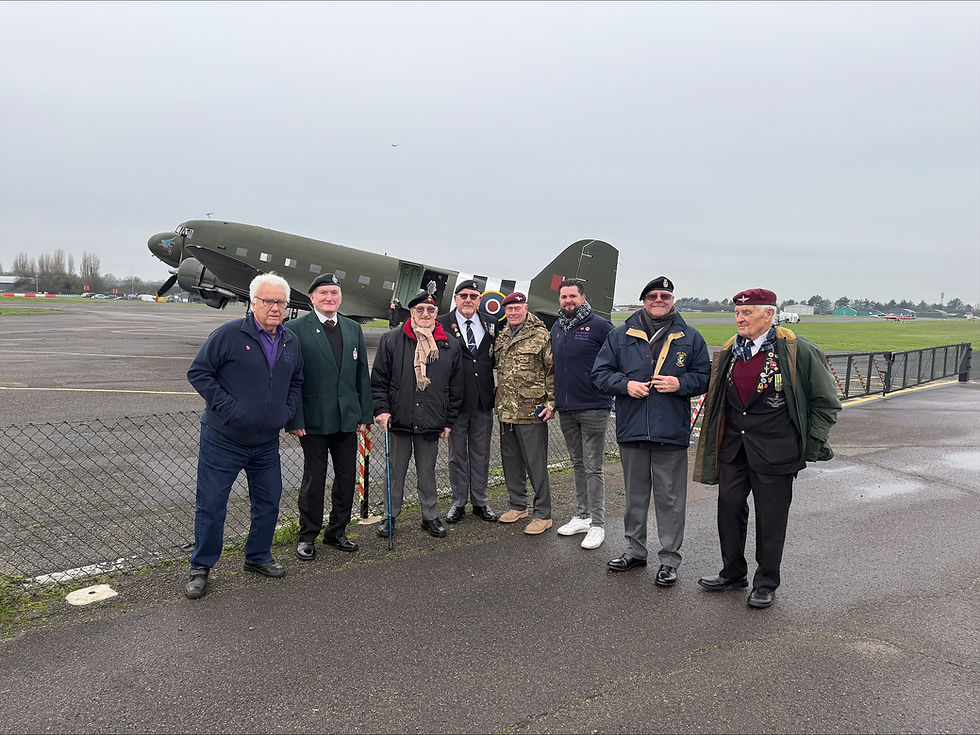In Memoriam: Fred Walker, Chelsea Pensioner - Telegraph Obituary
- taxicharity
- Jan 13, 2016
- 3 min read
Updated: May 28, 2021


Fred Walker, who has died aged 91, was a former Army Commando who, in June last year, was one of 19 Pensioners at the Royal Hospital Chelsea appointed Chevaliers of the Légion d’honneur by the French ambassador, Sylvie Bermann, in recognition of the part they played in the liberation of France and Europe.
Frederick John Walker was born in London on July 29 1924 and volunteered for military service with a friend during the early years of the Second World War, when both were under age. As neither could provide parental letters of consent they each wrote a signed letter for the other and Walker was accepted for the Commandos.
Following basic training with the Bedfordshire and Hertfordshire Regiment, he joined 3 Commando, and in his first action was involved in the disastrous 1942 raid on Dieppe, on a leading gunboat towing smaller craft. The boats came under fire from German E-boats, “creating havoc,” as he recalled, and the gunboat had to return to Newhaven.
Then 3 Commando was sent to Gibraltar, and from there to Alexandria to train for the invasion of Sicily. In July 1943 Walker was involved in the capture of a coastal battery at Cassabile where the Italians surrendered without a fight.
Later on the same month, 3 Commando embarked on their transport vessel, Prince Albert, with the task of landing behind enemy lines in the Bay of Agnone, and capturing the Ponte dei Malati bridge (later called “3 Commando Bridge”) over the Leonardo River, pending the arrival of the advancing 8th Army. They succeeded in capturing the bridge but came under heavy German mortar fire and shelling and were eventually forced to withdraw. During the action, they had contended with the 1st German Parachute Division which, in the confusion, had retreated without destroying the bridge – which was recaptured as the 8th Army arrived a short time later.
Walker, now wounded, was among the last to leave the bridge. He returned to the landing area where his overloaded boat sank. He was captured and given a drink by a German officer who believed the Allies would eventually take Sicily. Escaping from his captors, he was approached by another German officer who offered him a cigarette with the words “We are all in the same boat”, before disappearing.
Shortly afterwards they received orders to return to the United Kingdom in order to prepare for the invasion of France.
On D-Day, Walker crossed over to Sword Beach with 3 Commando, now part of the 1st Special Service Brigade, which had been tasked with linking up with the 6th Airborne Division on the eastern flank of the beach and securing the high ground near La Plein. 3 Commando lost 20 men when a landing craft received a direct hit but went on to fight its way through France to Holland, where Walker was injured during a confrontation with fanatical German defenders at Linne.
After convalescence in Manchester he rejoined 3 Commando, before returning to the Bedfordshire and Hertfordshire Regiment after the war ended, for a year in Greece. He was demobbed in 1946 .
After the war he had various jobs, including as a night driver inspector for two London councils.
He joined the Royal Hospital Chelsea in 2010 and proudly wore the uniform on Remembrance Sundays, marching past the Cenotaph and at the Royal Albert Hall Festival of Remembrance. He enjoyed giving television interviews about his memories of the war and also made regular visits to Normandy and Arnhem. Last year, despite worsening health, he travelled to Holland to mark the 70th Anniversary of D Day.
Walker’s first wife died, possibly as a result of TB contracted in London Underground bomb shelters during the Blitz. In 1946 he married his second wife, Annie, who died in 1993.
Fred Walker, born July 29 1924, died October 6 2015
Source: www.telegraph.co.uk











